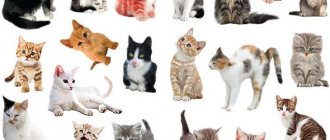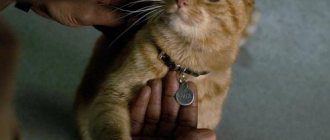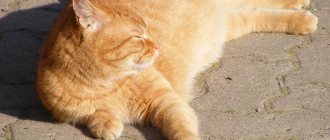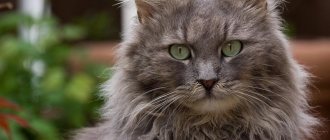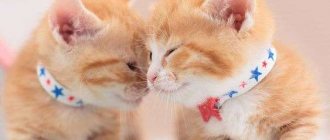Looking for a good name for your baby, pay attention to Egyptian names, they are not just cute, but also beautiful and full of meaning.
Interested in learning more about Egyptian female and male names and their meanings, or are you a parent looking for the best Egyptian name for your child? Here are 80 Egyptian baby names from which you can choose your favorite.
Egyptian names for boys
- Abanub: "ancient king".
- Abrax: "great archon of mythology."
- Kamuzu: "medical".
- Ammon: “hidden.”
- Bast: “fire, heat.”
- Aten: "solar disk".
- Hagar: "stranger."
- Aaron: "exalted."
- Jabare: "a person known for his bravery."
- Jabari: "brave".
- Ra: "sun".
- Masuda: “happy and joyful boy.”
- Hanbal: "perfect".
- Femi: “one who loves.”
- Fnurn: "mythical reborn sun."
- Pilis: “son of the second birth.”
- Nephi: “a good son.”
- Moses: "dark-skinned."
- Shabaka: "ruler".
- Kosei: "lion".
- Moeshe: “water-loving.”
- Ozymandias: "king of kings."
- Ah: “intelligence.”
- Masudi: "a cheerful and admiring person."
- Husani: "beautiful boy."
- Makalani: “assistant.”
- Zosar: "king".
- Latif: “flexible, kind.”
- Naguib: “innocent person.”
- Amasis: "child of the moon."
- Masud: "man of fortune."
- Nkosi: “correct, decent.”
- Menefere: "refined and beautiful."
- Heh: “God of time.”
- Khaba: "shadow".
- Horus: "God of light."
- Donkor: “one who is humble.”
List of options for naming children in Russian and their meaning
Men's
Beautiful modern:
- Amir - "prince". Amir has the following qualities: activity, creativity, practicality.
- Abbas - "formidable". His life is dynamic, interesting and bright. Amin - “impartial, fair.” As a child, he pleases his parents and grows up obedient.
- Anas - "benevolent". Sociable, friendly Aziz - “dear, dear.” Attentive and affectionate as a child.
- Anwar - “radiant, radiant.” As a child, the active but aggressive Assad is a “lion.” There is a penchant for business.
- Ahmad - "respectful". Differs in hard work and perseverance.
- Bakir - “tearing apart.” Open character, willing to communicate.
- Wasim - “beautiful, comely.” Cautious and indecisive.
- Walid - “newborn”. Freedom and independence are inherent.
- Wahid is “incomparable, one of a kind.” Values stability and calm.
- Jamil - “attractive”. Energetic, purposeful.
- Javid - “imperishable”. Can be impulsive.
- Zaki - “transparent”. Prone to movement.
- Zahir - “radiant, shining.” Talented in the field of science and philosophy.
- Zaid - “getting stronger.” Sociability in childhood is no different.
- Ikraam - “reverence.” Excitability and efficiency are inherent.
- Imam - "ruler". A born leader since childhood.
- Karim - "generous, generous." Brave, independent.
- Kamil - “over-the-star”. In childhood, restless, conflict-ridden.
- Kadir - “talented”. Brave and confident.
- Latif - “gentle, complacent.” Has a gentle character.
- Mukhtar - “selected”. Has many talents.
- Munir - “inimitable, magnificent.” Fidgety as a child.
- Mansur - "triumphant". Since childhood, he has been obedient and calm.
- Mustafa - "outstanding". Has a strong character.
- Malik - “lord, lord.” Growing up shy and indecisive.
- Muhammad - "honored" He is distinguished by accuracy and purposefulness.
- Nasir - “comrade, friend.” Always enjoys the love of others.
- Naji - “reliable, safe.” Successful in sports, creativity, and studies.
- Nasim - “breeze, blow.” Since childhood, he has been caring and calm.
- Nail - “ambitious”. Charismatic, sociable.
- Parvaiz - “successful, purposeful.” Affectionate, amorous.
- Rashid - "strong". He studies well at school and is diligent.
- Riyaz - “clearings, gardens.” Possessor of a sharp mind.
- Rauf - “kind-hearted.” Strong, resilient.
- Rafik - “comrade, brother.” As a child he is calm and friendly.
- Rahim - “merciful”. He is healthy and does not get sick.
- Roshan - “white light”. Unhurried, calm.
- Rizvan - “retribution, retribution.” Sociable and cheerful.
- Rakhat - “silence, comfort.” Grows up honest and fair.
- Said - “favorable, desirable.” Exudes strength and power.
- Salim - "safe". Diligent, diligent.
- Tofik - “good welfare”. He has a need to rule.
- Osama means "lion". Constant anxiety.
- Faris - "aristocrat". He understands other people well.
- Fadi - "liberator". He has a need to be the center of attention.
- Farid - “the only one, the most valuable.” Smart, inventive.
- Fahim - “sane, prudent.” Since childhood, he has been very attached to his mother.
- Hamid - “beneficent, grateful.” Very friendly.
- Hakim - "wise". Charming personality.
- Khadi - “submissive to God.” It grows bright and spontaneous.
- Khayyam means “tent maker.” As a child, he was self-willed and inquisitive.
- Khabib - “beloved, dear, beloved.” The owner of a very changeable character.
- Hatim - “brave”. Growing up artistic.
- Hassan - “youth”. Sociable, cheerful, open.
- Shakir - “beneficent.” Distinguished by endurance.
- Shafik - “merciful, selfless.” Doesn't like being bossed around.
- Sharif is “wonderful.” Strong personality.
- Yasir - “rich, rising.” Has a need to dominate.
Ancients:
- Abant is a military man from Ethiopia. The meaning is not clear.
- Agenor is Andromeda's husband. Needs self-expression.
- Agirt is a military man from Ethiopia. He grows up as a purposeful child.
- Anubis is an ancient Egyptian deity with the head of a jackal and the body of a man, an escort of dead souls to the afterlife. I have been inquisitive since childhood.
- Arueris is the deity of Ancient Egypt, the old Horus, called Apollo. Stubbornness and self-will are inherent.
- Atlas is a river and hill in Libya. Grows active, but scattered.
- Bebon is Typhon's henchman. Shy as a child, but talented.
- Bel – “king”. Pride and arrogance are inherent.
- Bukur is a Moorish god. Friendly and easy to get in touch with.
- Varsutin is a Moorish god. Able to study well, but restless.
- Harpocrates is the personification of silence. Calm, stable.
- Horus is the god of Egypt, pharaoh. He is growing up to be an active boy.
- Danaus - Libyan ruler. He has a keen sense of justice and is pugnacious.
- Eurypylus is the name of the god Triton. External positive assessment is important for a child.
- Imandes is the ruler of Egypt. Responsive and kind.
- Imhotep - “he came into the world.” He is particularly successful not in studies, but in sports.
- Lik - Libyan ruler. In childhood, he shows such qualities as calmness and obedience.
- Mendes is a deity. He has been well developed intellectually since childhood.
- Nile - “child of the Ocean and Tethys.” A cheerful and active child.
- Nikteus – “reigning.” Purposeful to the point of selfishness.
- Niley - “warrior born of the Nile.” Easy to learn, smart.
- Omphis is another name for Osiris. He does not like to obey, he is independent.
- Parammon is the god of Libya. Study and sports will make him a leader in life.
- Polybus is the king of Thebes in Egypt. He is growing up to be a very caring child.
- Raamses is the child of the sun god Ra. Easily excitable.
- Triton - Libyan ruler. Easily moves from a state of rest to imbalance.
- Tryphon is a deity. He is growing up to be an active boy.
- Tutankhamun is a “walking copy of the god Amun.” The character is mobile and restless.
- Ferodamant is the ruler of Libya. Grows active and mobile.
- Emathion - Ethiopian king. Persistent, inquisitive.
- Endius - “King of Ethiopia”. From an early age, careful and attentive
- Ahmose – “son of the god of Egypt.” Pleases parents with his intelligence.
Egyptian female names: list
- Nubia: "treasure".
- Happy: "morning sun."
- Yeshag: “the name of the prophet.”
- Lapis: "semi-precious stone of blue color."
- Naima: "a caring and compassionate woman."
- Berenice: “he who brings victory.”
- Shine: "daughter of the Nile."
- Cleopatra: "Glory to the father."
- Mandisa: "sweet".
- MA: "truth".
- Rehema: "compassionate woman."
- Nefertari: “the most beautiful, magnificent.”
- Delilah: “weak.”
- Safia: “pure.”
- Nailya: “successful.”
- Masika: "the girl who was born in the rain."
- Ebony: “black.”
- Nanu: “sweetheart.”
- Latifah: “pleasant and kind person.”
How to name a child correctly - traditions and features in modern times
When choosing a name for a child, it is important that it not only be harmonious in itself, but also be combined with the baby’s last and patronymic names. Cute modern Egyptian names should initially fit the child, and not comply with the current laws of beauty and fashion.
An impeccably correctly chosen name has a strong positive impact on the child’s temperament and future destiny. Fortunately, the choice of names in Egypt is incredibly vast , with each name having its own unique meaning.
More Egyptian names for girls
- Cliupatra: “who brings glory to the father.”
- May: “warm heart.”
- Tauret: "goddess of pregnant women."
- Shani: "beautiful woman."
- Fem: “name of love.”
- Neferteri: “magnificent, most beautiful.”
- Massika: “born in the rain.”
- Nane: “good person.”
- Nate: "Proud."
- Theme: "queen".
- Neneth: "a person who is spiritual and divine."
- Thaya: "deity of light, ancient Egyptian queen."
- Edris: "prosperous ruler."
- Nefertiti: “very beautiful.”
- Mosven: "light-skinned person."
- Ebony: “black.”
- Nephthys: “spiritually rich.”
- Nephret: “beautiful, beautiful.”
- Isis: "ideal of femininity."
Etymology
Names in Ancient Egypt, just like those of other nationalities, emphasized the originality, originality of a person, his obedience to any god; names of animals and plants, objects, crafts.
The Egyptians paid tribute to the name and, by and large, to any words spoken publicly or written on papyrus. Egyptian names and their semantics spoke about ancestry, social status, beliefs and distinctive personality traits. Egypt is a land known throughout the world for its Spiritual cult, therefore the lion's share of Egyptian names directly relate to religion.
In etymology, Egyptian names are predominantly Semitic. There are names in which Greek-Latin (Sukrat, Iflatun, Iklidis), Iranian (Farhad, Khusruf) and Turkish (Arslan, Tuman) influence can be traced. There is a small proportion of infusions from Indian, Berber and other languages.
Often the same name belongs to several languages . With the spread of Islam, Egyptian names “absorbed” some of the related Semitic names. Over the course of several centuries, they managed to actively spread throughout the country. Since ancient times, the state has lovingly preserved its millennia-old culture, which is why Egyptian names have not lost their relevance to this day.
List of Egyptian goddess names
In addition to the above-mentioned supreme goddesses, in Egypt there were many divine female beings who were of a lower rank, but were also highly revered by both ordinary people and the nobility. It is not possible to list them all, since their number is large, but it is still worth highlighting some that are particularly noteworthy. So, the names of Egyptian goddesses that were significant in ancient times:
- Hathor is the goddess of unbridled fun and passion. Her sphere is dancing, love, beauty and wild lust, which sometimes took serious and sometimes cruel forms. Sometimes this goddess was depicted with horns, inside of which the sun blazed. Her name literally means “house of Horus,” despite the fact that she was considered the daughter of Ra himself.
- Ma'at is a derivative of "muat", which in Egyptian means "truth", "fair governance". Among the names of the gods of Egypt, it was revered with special respect, because it was the name of the goddess of truth, justice and world order. She was usually depicted as a young woman with a red ribbon in her hair, into which was stuck an ostrich feather. It was this that she placed on the scales that measured a person’s righteousness at the moment of transition to the afterlife. If the soul of a person, placed on the second scale of the scales, turned out to be heavier, then the person, as unworthy, was devoured by the monster Amat.
- Taurt, who was revered by pregnant women, women in labor and those wishing to become pregnant. Her name comes from the word “veret,” which means “great.” Although later she was given the nickname Nurse. The goddess Taurt was often depicted as a large hippo standing on her hind legs, with well-defined breasts, sometimes wearing a wig or baring her teeth.
- Serket (Selket, Selkis). The names of Egyptian gods and goddesses often varied slightly depending on the region and time periods. This happened with the name of the goddess of the dead Serkhet, who was called differently in different parts of Egypt. As a rule, she was depicted with a scorpion on her head, as it was her symbol. It was Serket who deprived the mighty warrior Menes of the opportunity to reincarnate, taking him into her retinue. Why? Menes called himself the king of scorpions and also had this insect as an emblem.
Several second-order gods
A short list of Egyptian gods, their names and meanings will give a more complete picture of what the ancient Egyptians believed:
- Amat. A deity in the form of a terrible monster living in the fiery lake of the underground kingdom of Osiris. It was represented as a lion with the head of a crocodile and the hind legs of a hippopotamus. If the court of Osiris and Maat recognized a person’s soul as unrighteous, the monster Amat devoured him in the blink of an eye.
- Montu was also considered a solar deity, but with negative traits. Drought and fires are all its manifestations. Later he began to personify the god of war and battles. Often depicted with the head of a falcon, which had a high crown in the shape of the sun.
- Anubis. Despite the fact that this deity is not a member of the Ennead, he was quite popular and very revered among the Egyptians. The Jackal God, as he was called because he was depicted with the head of a dog or jackal and could transform into it if necessary. It was believed that he was the son of Osiris. Although some historians argue that the cult of Anubis, the god of the underworld, existed long before him, but was gradually supplanted. Later he became a guide of souls to the afterlife.
- Ptah (Ptah). According to some versions, it was he who was the creator god instead of Atum, giving birth to the divine primary elements from which the entire material world was created. Usually he was depicted in very narrow and long clothes, completely hiding his body, but with a staff in his hands. According to some researchers, it was the name of the god Ptah that gave the name to the entire country: Egypt is a highly distorted Egyptian “hikuptah” (in Greek – “aygyuptos”), which means “the estate of the soul of Ptah,” that is, the favorite home of the god Ptah.
Goddess Bastet
Everyone knows that the cat in Egypt is a sacred animal, but who knows where the roots of this cult go? All paths lead to the goddess Bast or Bastet, who was a symbol of motherhood and home. She was almost always depicted as a slender woman with the head of a cat (sometimes completely animal), often with several kittens at her feet, symbolizing love for children, and also with a sistrum (musical instrument) in her hands.
Sometimes she was identified with the goddess Hathor, sometimes with Tefnut or Sekhmet, which created some confusion for historians who researched the names of the gods of Egypt. God Khonsu was her brother, and Bes (Bees, Wes) was her husband. The goddess was so loved that if a cat died in a family, all family members would shave off their eyebrows as a sign of grief, and if someone was seen to have accidentally harmed the animal, it could be stoned to death.
It is noteworthy that the goddess Bastet has two faces: a kind one - in the form of a smiling cat, and an aggressive one - in the form of an angry lioness who crushes everything in her path.
The mythology of Egypt can be studied for a very long time, but more and more new aspects and nuances of the existence of higher beings in which ancient people believed are constantly being discovered.
Osiris
Among the names of the gods of Egypt, the name Osiris was especially popular, since it was he who became the founder of all myths about the resurrection. It was his body that was first mummified by his wife Isis. Osiris was usually depicted as a mummified man with greenish skin and symbols of supreme power in his hands (a scepter and a flail).
The parents of Osiris are Geb and Nut. He had a sister, Nephthys, and a brother, Seth, who later became the most popular in Egyptian history. The names of gods often convey a special meaning, and Osiris is no exception. His name is translated as “mighty sun” or “throne of the sun,” that is, it hints at the height of his position - the god of rebirth, as well as the judge of all the dead.
The most significant goddess
All the names of the gods of Egypt fade before her - Isis (Isis). She was the favorite goddess of all women and personified motherhood, femininity and marital fidelity. She was not just the wife of Osiris, but also a blood sister, which is why they were so devoted to each other.
Often the goddess of motherhood was depicted as a woman with the head of a cow or simply wearing a crown with horns, and often a throne was depicted on her crown as a symbol of her name: Isis literally translates as “throne”. Being the first daughter of Geb, she absorbed the best qualities, therefore she was often the patroness of the unfortunate: slaves, sinners, martyrs in childbirth and abandoned children.
Among the names of the gods of Egypt, hers is the most mentioned and revered. According to historians, it was Isis who became the prototype of the Holy Mother of God when Christianity was born.
Birth of Horus
The names of the gods of Ancient Egypt, as well as some facts of their lives, were sometimes very specific. This is exactly what happened with the son of the devoted brother of Osiris. His wife Isis needed a successor to the family, but since the intimate part of her husband’s body was never found before the embalming process, she fashioned a phallus from clay and consecrated it with the necessary rituals. After that, she inhabited the body of a female kite and, wrapping her husband’s mummy with huge wings, whispered a secret spell that allowed her to conceive a child who would avenge the death of her father.
This is how Horus, the god of Egypt, was conceived. His names changed somewhat during the reign of different pharaohs: Horus, Horus or Horus, which translated from Egyptian had two meanings: “sky” and “height”. He had the head of a falcon instead of a human one, although he was sometimes depicted as a winged sun.
From the first days of his life, Horus hated Set and was his eternal enemy, and when he grew up and matured, he challenged him to a duel, in the process of which he lost his eye. Without being confused, he put his torn out eye into his father’s mouth - and he miraculously came to life.
Djehuti, aka Teut
Tuut, Tut and Tehuti are not the entire list of names used to call the god Thoth, who was one of the most ancient gods revered throughout Egypt. He was depicted as a man with the head of a bird (ibis), which had a long beak, and usually held a staff or writing utensils in his hands. Thoth was the god of wisdom, knowledge and intelligence. It is believed that it was he who taught people to count, write, and also introduced the calendar.
His wife was Maat, the goddess of order, and together they personified the ideal pair of two highly developed beings. Thoth was also always present at the trial of Osiris and meticulously recorded all the results, for which he was nicknamed the Scribe of the gods of Egypt. In ancient pictures, the name of this god was depicted in the form of an ibis, behind which there are writing sticks.


